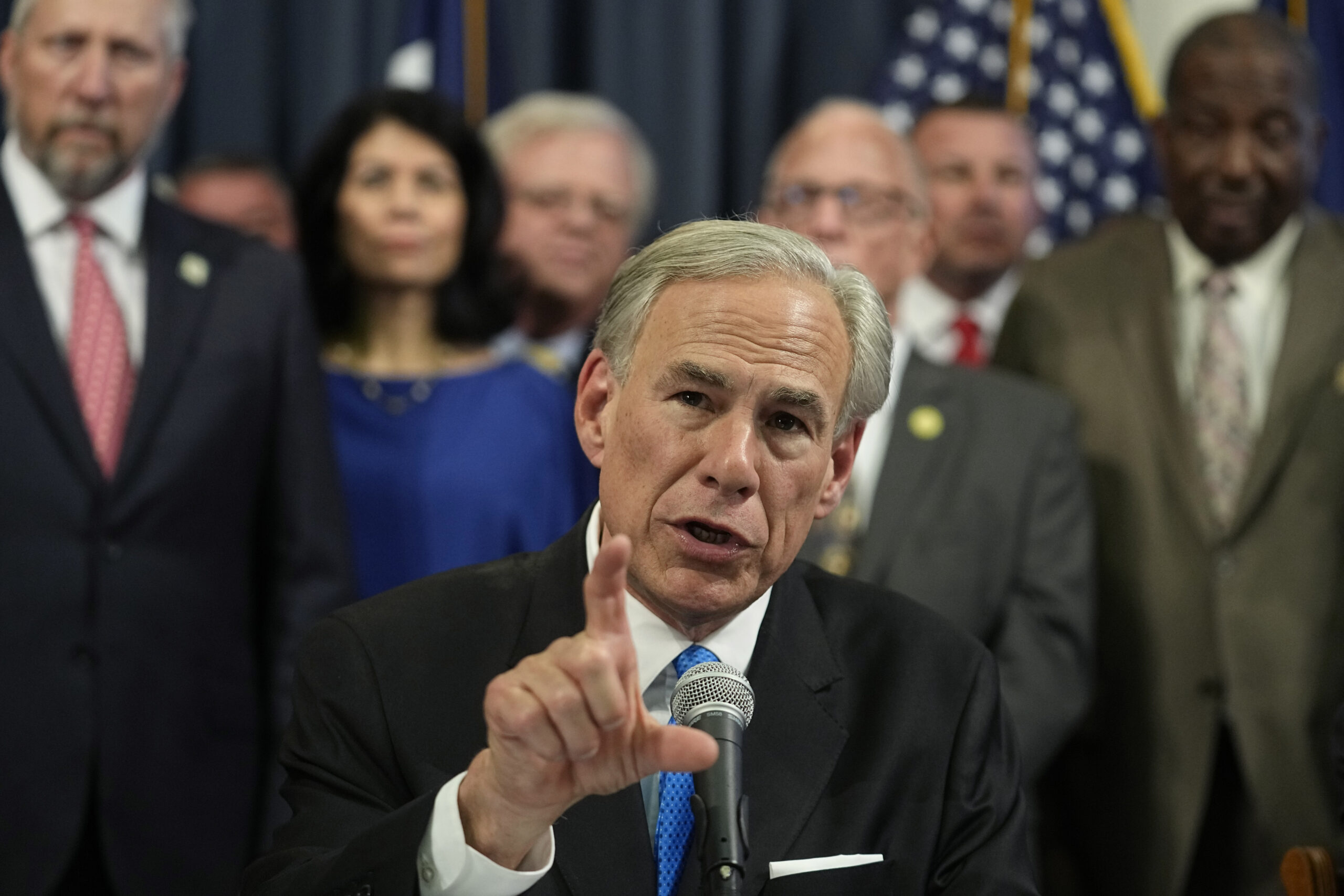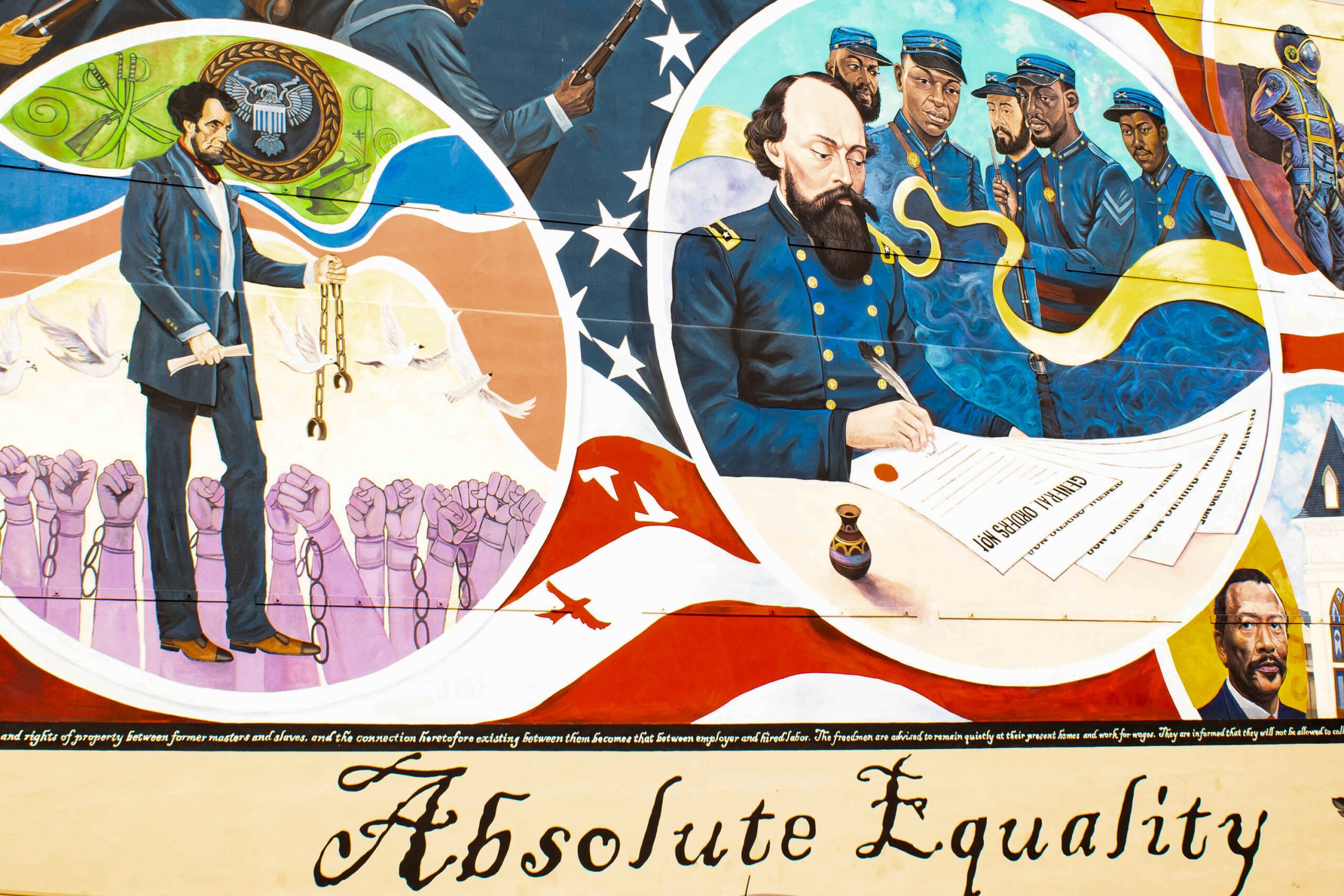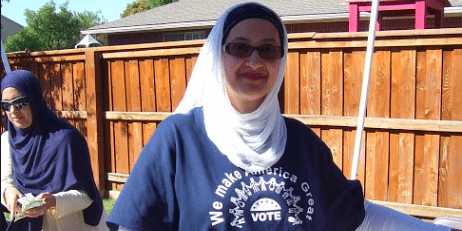
Can Texas Muslims Trump Islamophobia?
As the president-elect ushers in an era of anti-Muslim rhetoric, Texas Muslims are fighting back.
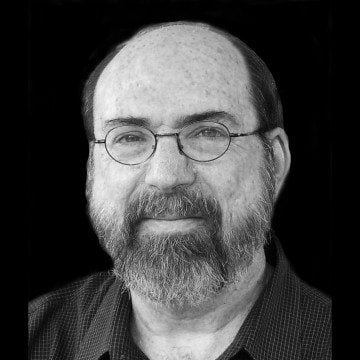
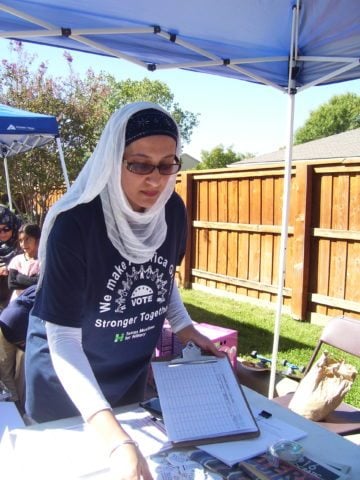
What we’re seeing in the Muslim community today is just the latest episode in a story as old as our nation and the 13 colonies that preceded it: A religious minority suffers persecution and violence, then uses the democratic process not only to push back, but to grow and flourish.
In the colonial period, Baptists and Quakers were often imprisoned and in some cases even put to death. Members of the nascent Methodist movement often faced hostility and violence. Indeed, like many American Muslims today, Catholics and Jews in the 19th century suffered not only because of religious intolerance but because they were recent immigrants to the U.S.; they endured nativist attacks similar to those we saw in President-elect Donald Trump’s campaign this year.
But in each case these groups survived and eventually thrived. They did so not only because of the Constitution’s protections of religious freedom, but also because they took hold of the democratic process and used it to fight back against discrimination. In the process, members of once-persecuted religious groups have risen to positions of political power (think Catholics like Governor Greg Abbott, Baptists like Lieutenant Governor Dan Patrick or Jews like Justice Ruth Bader Ginsburg).
Now that a man who has advocated registering Muslims in a national database will soon occupy the White House, it’s the turn of America’s Muslim community to defend religious freedom. And, according to Aftab Siddiqui, they’re ready.
“We’re not going anywhere. This is our country,” he says.
Siddiqui, an Arlington resident and a member of the Muslim Democratic Caucus (MDC), is one of a growing number of politically engaged Texas Muslims. This change is particularly pronounced in the Dallas-Fort Worth area, which more than 155,000 Muslims call home — making it the state’s second-largest Muslim population. (Houston is the largest, with more than 157,000 Muslim residents.) In the months leading up to the election, that community saw an unprecedented upsurge in political engagement, including the registration of thousands of new Muslim voters.
While African-American Muslims, who make up about a third of the U.S. Muslim community, have long been politically active, the Muslim immigrant population traditionally voted in small numbers. This year, however, the rise in anti-Muslim rhetoric led to a spike in voter registration among immigrant Muslims nationwide. According to the U.S. Council of Muslim Organizations, more than 1 million Muslims had registered to vote by November 8 — out of the total American Muslim population of around 3.3 million.
In the Dallas-Fort Worth area, the Muslim Democratic Caucus held voter registration drives at 15 area mosques every Friday during weekly prayers from May through October of this year. Local imams urged their congregants to get registered. Siddiqui, who helped organize the registration effort, said it netted around 5,000 new Muslim voters, or about 3 percent of the total 2010 DFW Muslim population.
If anyone embodies this new political engagement in DFW’s Muslim community, it’s Noma Nabi. Motivated in part by the Islamophobic rhetoric she witnessed in a 2015 Irving City Council hearing on an anti-Shariah resolution, she sought out training to become a voter registrar. Beginning in Ramadan in June of this year, Nabi spent the next three months visiting local mosques and signing up new voters. She also led simultaneous voter registration drives at three Muslim prayer services on the last Friday before Texas’ registration deadline, all while working full time.
“As more and more hateful rhetoric comes out against Muslims,” she said, “you can’t just stand there and give up.”
Now that Trump is headed to the White House, what’s next for the Muslim community? The DFW Muslims I talked to mentioned two priorities: safety and political engagement.
“Our next step is to ensure the safety of our people,” said Zulikha Hussain, Muslim Outreach Director of the Dallas County Democratic Party. According to Aftab Siddiqui, members of the community have started sharing information through the mosques and via social media about attacks and potential dangers. Muslim community leaders are also meeting with local law enforcement agencies.
But that’s only the first step, Hussain added. “Now’s the time when we can’t be passive anymore,” she told me. “We have to make a better effort to work harder in exercising our voting and our rights.”
Siddiqui identified local politics as the next logical step. “We have sizable numbers of Muslim voters in at least 10 of the cities in North Texas,” he said, citing Irving, Carrollton, Richardson, Plano and Arlington. Muslim Democrats plan to start running candidates in local elections that begin in May 2017, Siddiqui told me.
Politicians should listen up. For they neglect — or anger — the Muslim community at their peril. Although the Pew Research Center estimates that Muslims currently make up only about 1 percent of the U.S. population, their share will likely double by 2050.
In low-turnout elections, active Muslim participation could be decisive. In fact, it already has been — in Irving’s May 2016 City Council elections. Motivated by the council’s anti-Shariah resolution, Irving Muslims didn’t just turn out: they turned the tables. James Ragland reports that Muslim voters amounted to “nearly 18 percent of the ballots cast.” Indeed, one Muslim resident’s ballot effectively decided a razor-thin City Council runoff election the following month.
Therein also lies a warning for white evangelical Christians. Flush with the promise of GOP control over all three branches of the federal government, white evangelicals may be tempted to push through a religious agenda that not only would weaken or overturn Roe v. Wade, outlaw same-sex marriage and restore discrimination against transgender persons, but would also discriminate against Muslims and other non-Christians — such as the various anti-Shariah bills considered by the Texas legislature just last year. (Two anti-Shariah bills — HB 45 and HB 498 — have already been filed for the 2017 Lege.)
However, white evangelicals should think twice before attempting to impose their own religious vision on the rest of us. Political power is fickle, and demographics are not on their side. It is with good reason that Public Religion Research Institute’s Robert P. Jones titles his recent book The End of White Christian America. As Jones notes, only 29 percent of young adults are white Christians, compared to 7 in 10 American seniors. And the white evangelical percentage of the population has slipped from 22 percent in 1988 to 17 percent in 2015.
In the not-too-distant future, white Christians may well find themselves marginalized and politically impotent. On that day, they’ll need the constitutional safeguards that have traditionally protected religious minorities.
And if those protections still exist, a future white Christian minority may well have today’s Muslim community to thank.
